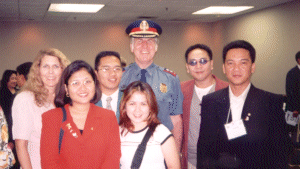
You don’t have to be a hardened criminal to get into trouble with the law!
The truth is that many offenses related to motor vehicles are criminal offenses. You could end up in hot water just driving a car if you’re not careful. Of course, some young people get into trouble for heavy things like car theft, vehicle-related charges, breaking and entering, smoking and possessing dope, and other drug charges.
In this section, we’ll remind you about some of your legal rights, in case you do have a brush with the law
The Police
If you do get into trouble with the Law, you don’t have to answer any questions asked by the Police except in the case of motor accidents where you are obliged to give the Police your name and address and identify any driver (if possible) alleged to have committed an offense and give details of the accident. You are also required to produce your license on demand by the Police. If you are suspected of importing or exporting drugs you must also answer any questions asked by customs officers in relation to the matter
If the Police indicate you are being arrested you should always ask the reasons why. The Police can ask you to accompany them to the Station for questioning, but can not make you go to the Police Station unless you are arrested.
The thing to remember about the Police is this – they are ultimately there for your protection and to uphold your rights – so it makes good sense to treat the Police with courtesy and respect. In fact, you will find in all your dealings with the Police, Police conduct will go a long way. Here’s something else to think about as well.
At the Police Station, you should always seek to have someone present during your questioning, preferably a solicitor or your parents. You should ask if you can call them or have a message sent to them and, if you are uncertain of your position, not answer any questions until they arrive.
If you are arrested and charged with an offense you will either be released on bail or remanded in custody. In most States, the Police might also take your photographs and fingerprints for identification. If you are fingerprinted or photographed and after being found not guilty, you can demand to have the prints and photographs destroyed.
Just a final word. The Police have one of the toughest jobs around. The best way you can help them perform their duty is to co-operate with them, after all, the Police Force like all government services is there to serve you. Stay calm and try to help wherever possible.
Freedom
When you turn 16 in Australia it is recognized that you are legally entitled to handle extra freedom and responsibilities, although most rights become available at18.
At 16, you also qualify for unemployment benefits although if you are a school leaver you must wait six weeks for this. Certain contracts entered into by a young person between 16 and 18 would probably be recognized – for example, renting a flat or purchasing on credit – however, anyone dealing with a person of this age would normally require a parent or someone over 18 to guarantee the obligation.
At 18 you are entitled to many more rights. You can vote and have your say in the country’s political system. In fact, you must enroll and vote in elections once you are 18. You can do other things like a drink in a pub or buy alcohol legally, get married or leave home without your parent’s permission, have a punt at the TAB, or watch any kind of movie you want.
Don’t forget, with all this extra freedom comes extra responsibility. You cannot really have one without the other. From now on you’re mature enough to be held fully responsible for your actions. It is important not to make big decisions lightly, especially ones which will affect your whole life (like marriage, finance agreements, or a car or house purchase).
Contracts and money
Even if you are under 18 you can still be bound by agreements you make depending on the circumstances. You should always think twice before committing yourself to making regular payments on something you want to buy.
Anyone under 18 can also open a cheque account with a bank provided they are thought mature enough to handle it.
Want to know more?
The best way to find out more about your rights is to telephone the Law Society in your State (see contact details below). They can steer you in the right direction.
If you need help with a specific problem, the Law Society in your State can put you into the appropriate Legal Referral Centre or Community Aid Centre. There you can talk with trained legal people free of charge. However, you should always make an appointment before you call as these centers can be very busy.
It could also be a good idea to buy a copy of “The Pocket Guide to the Law” which is published by Bay Books in association with the Law Foundation of New South Wales. This handy little book contains at-a-glance information about most legal questions you’ll want to be answered.
Follow us on Facebook, Twitter, or Linkedin.
© 2007 – 2022 Police & Law Enforcement Professionals Fellowship of Rotarians (PoLEPFoR)
